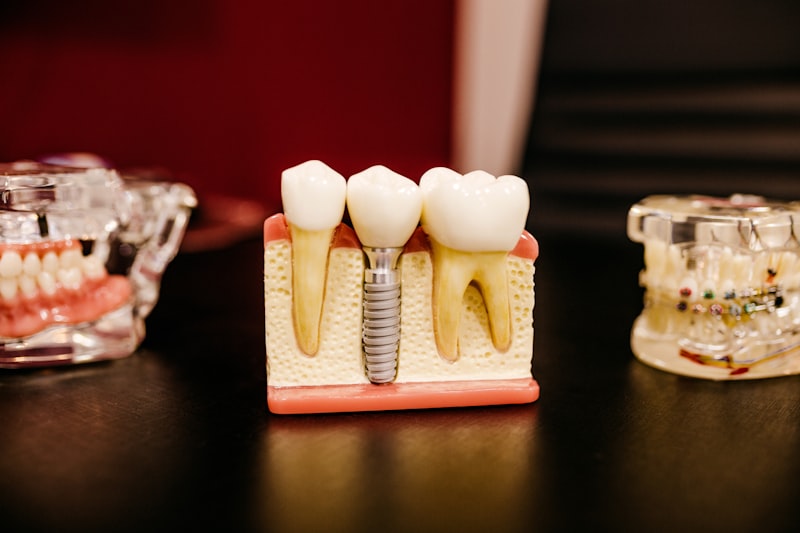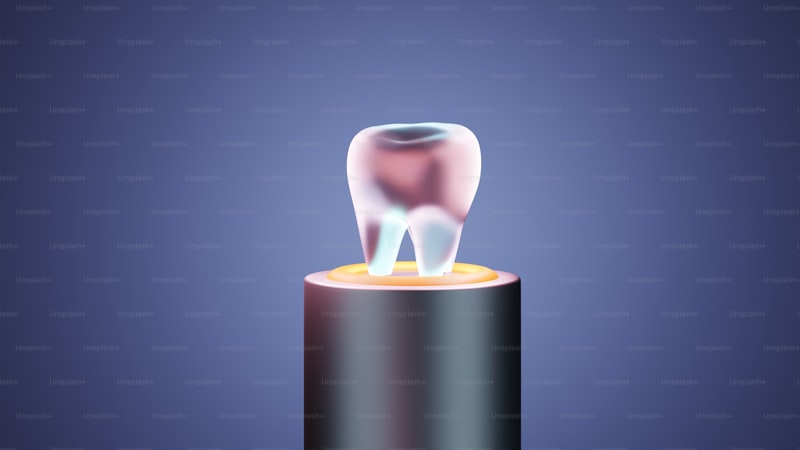Firstly, let’s understand what causes tooth sensitivity. Often, it’s due to worn tooth enamel or exposed tooth roots. Enamel can wear down over time from aggressive brushing, acidic foods, or even teeth grinding. When the protective layer of enamel is compromised, it exposes the dentin underneath, which is full of tiny nerve endings that react to hot, cold, acidic, or sticky foods.
One of the most effective ways to manage tooth sensitivity is by switching to a toothpaste designed specifically for sensitive teeth. These toothpastes contain ingredients that help to block the nerve endings in the dentin, reducing sensitivity over time. It’s important to use this toothpaste consistently to see the best results.
In addition to using a sensitive toothpaste, consider your brushing technique. Brushing too hard can actually wear down enamel faster and contribute to sensitivity. Opt for a soft-bristled toothbrush and use gentle, circular motions when brushing. This helps to clean your teeth without putting unnecessary pressure on them.
Another great tip is to be mindful of what you eat and drink. Avoid acidic foods and beverages like citrus fruits, sodas, and wine, as these can further wear down enamel and exacerbate sensitivity. If you do indulge, consider using a straw to minimize contact with your teeth.
Lastly, if you grind your teeth at night, talk to your dentist about getting a mouthguard. Grinding can wear down enamel and lead to increased tooth sensitivity. A mouthguard creates a barrier between your upper and lower teeth, protecting them from damage while you sleep.
Handling tooth sensitivity is all about being proactive with your dental care routine and making small adjustments that can lead to big improvements in your comfort. By using the right toothpaste, brushing gently, watching what you eat, and protecting your teeth from grinding, you can say goodbye to that unwelcome tooth pain and enjoy your favorite foods and drinks once again.
Soothing Solutions: Expert Tips for Managing Tooth Sensitivity
One of the first things you can do is switch to a toothpaste specifically designed for sensitive teeth. These toothpastes contain special ingredients that help to block the tiny tubules in your teeth that lead to the nerves. This can significantly reduce sensitivity over time with regular use.

Another handy tip is to watch what you eat and drink. Acidic foods and beverages, like citrus fruits and soda, can wear down your tooth enamel over time, exposing the sensitive dentin underneath. Try to limit your intake of these items, or if you do indulge, rinse your mouth with water afterward to help protect your teeth.
Are you a night grinder? Many people grind their teeth in their sleep without even realizing it, which can lead to increased tooth sensitivity. Consider wearing a night guard to help cushion your teeth and protect them from the effects of grinding.
And let’s not forget about proper brushing technique. Using a soft-bristled toothbrush and gentle, circular motions can help to clean your teeth effectively without causing further enamel wear. Brushing too hard or using a hard-bristled brush can actually make sensitivity worse, so it’s important to be gentle.
Last but not least, regular dental check-ups are key. Your dentist can identify any underlying causes of tooth sensitivity, such as gum disease or tooth decay, and recommend appropriate treatments.
By incorporating these expert tips into your daily routine, you can effectively manage tooth sensitivity and keep your smile bright and pain-free. Remember, a little care and attention go a long way when it comes to dental health!
Say Goodbye to Discomfort: Effective Ways to Alleviate Tooth Sensitivity
One of the primary causes of tooth sensitivity is exposed dentin, the layer beneath your tooth enamel that contains tiny nerve endings. When the enamel wears down or the gums recede, dentin becomes exposed, leading to sensitivity. Thankfully, there are several strategies you can adopt to combat this issue.
Firstly, choosing the right toothpaste can make a world of difference. Look for desensitizing toothpaste that is specifically formulated to help reduce sensitivity over time. These toothpastes work by blocking the nerve endings in the dentin, thereby minimizing the pain associated with hot and cold foods.
Additionally, adjusting your brushing technique can help prevent further enamel erosion. Avoid brushing too aggressively, as this can wear down enamel and exacerbate sensitivity. Instead, opt for a soft-bristled toothbrush and gently brush using circular motions.
Furthermore, paying attention to your diet can play a crucial role in managing tooth sensitivity. Acidic foods and drinks can erode enamel and increase sensitivity. Limit your intake of carbonated beverages, citrus fruits, and wine, and try to drink water after consuming acidic foods to neutralize the acid.
For those who grind their teeth, known as bruxism, using a mouthguard at night can protect your teeth from unnecessary wear and tear. Bruxism not only wears down enamel but can also cause gums to recede, exposing dentin and increasing sensitivity.
Lastly, regular dental check-ups are essential. Your dentist can identify underlying causes of sensitivity, such as cavities or gum disease, and provide appropriate treatment. Professional treatments like fluoride varnishes or dental bonding may be recommended to strengthen enamel and reduce sensitivity.
By adopting these effective strategies, you can say goodbye to tooth sensitivity and hello to enjoying your favorite foods and drinks once again. Take charge of your oral health today and start smiling without hesitation!
Sensitive Teeth SOS: Practical Steps to Reduce Dental Pain
Do your teeth twinge with discomfort whenever you sip on a hot cup of coffee or indulge in an icy treat? If so, you’re not alone. Sensitive teeth can put a damper on enjoying your favorite foods and drinks. However, there are practical steps you can take to alleviate dental pain and regain your comfort.
Firstly, consider switching to a toothpaste specially formulated for sensitive teeth. These toothpastes contain ingredients like potassium nitrate or strontium chloride that help desensitize nerve endings in your teeth, reducing sensitivity over time. Incorporating this into your daily dental routine can make a noticeable difference.
Another helpful tip is to adopt a gentler brushing technique. Abrasive brushing can wear down enamel and expose sensitive areas of your teeth. Instead, opt for a soft-bristled toothbrush and use gentle, circular motions when brushing. This approach effectively cleans your teeth without causing further irritation.
Furthermore, pay attention to what you eat and drink. Acidic foods and beverages, such as citrus fruits and sodas, can erode enamel and exacerbate sensitivity. Limiting your intake of these items can preserve your enamel and lessen sensitivity.
Additionally, consider using a fluoride mouthwash. Fluoride strengthens enamel and can help reduce sensitivity by protecting your teeth against acid attacks and decay. Swishing with fluoride mouthwash after meals provides an extra layer of protection for your teeth.
Lastly, if these steps don’t provide sufficient relief, it’s crucial to consult with your dentist. They can evaluate the underlying cause of your sensitivity and recommend specialized treatments such as desensitizing treatments or dental sealants.
By incorporating these practical steps into your daily routine, you can effectively manage and reduce dental pain caused by sensitive teeth. Remember, consistency is key when it comes to oral care, and taking proactive measures can lead to lasting relief and healthier teeth.
Protect Your Smile: Essential Strategies for Dealing with Tooth Sensitivity
Firstly, it’s crucial to understand what causes tooth sensitivity. Often, it’s due to worn-down tooth enamel or exposed tooth roots. Enamel erosion can result from aggressive brushing, acidic foods and drinks, or even conditions like acid reflux that expose teeth to stomach acids. Gum recession, on the other hand, can expose the sensitive root surfaces of teeth, making them more susceptible to temperature changes and touch.
To combat these issues, adopting a gentle oral care routine is paramount. Opt for a soft-bristled toothbrush and gentle brushing motions to minimize enamel wear. Using toothpaste specifically formulated for sensitive teeth can also help. These toothpastes typically contain desensitizing agents that block the nerve pathways in the teeth, reducing sensitivity over time.
Avoiding acidic foods and drinks such as citrus fruits, sodas, and vinegar-based dressings can prevent further enamel erosion. If you do consume acidic foods, rinse your mouth with water afterward and wait at least 30 minutes before brushing to allow your enamel to re-mineralize.

For those with gum recession, consider using a fluoride mouthwash to strengthen tooth enamel and protect exposed roots. In severe cases, your dentist may recommend treatments like fluoride varnishes or bonding agents to cover exposed root surfaces and reduce sensitivity.
In summary, managing tooth sensitivity requires a proactive approach to protect your enamel and gums. By adopting gentle oral care habits, using specialized toothpaste, and avoiding acidic foods, you can significantly reduce discomfort and safeguard your smile. Remember, consulting your dentist for personalized advice and treatment options is always a wise decision to ensure long-term dental health.
Frequently Asked Questions
How can I alleviate tooth sensitivity at home?
Discover effective home remedies to reduce tooth sensitivity, providing relief from discomfort. Learn about gentle dental care practices and natural remedies that can help alleviate sensitivity, promoting better oral health.
What toothpaste is best for sensitive teeth?
Discover the ideal toothpaste for sensitive teeth with our concise guide. Learn about recommended ingredients and find solutions to alleviate discomfort, ensuring a refreshing and comfortable dental care experience.
When should I see a dentist for tooth sensitivity?
Discover when it’s crucial to visit a dentist for tooth sensitivity with our concise FAQ. Learn about signs indicating a need for professional care, ensuring timely treatment and relief.
What causes tooth sensitivity?
Discover what causes tooth sensitivity and how to manage it. Learn about common triggers like enamel wear, gum recession, and dental procedures that can lead to sensitivity. Find effective solutions and preventive measures to alleviate discomfort.
Are there lifestyle changes that can help with tooth sensitivity?
Discover effective lifestyle changes to alleviate tooth sensitivity. Learn practical tips and adjustments to daily habits that can reduce discomfort and enhance dental health.


